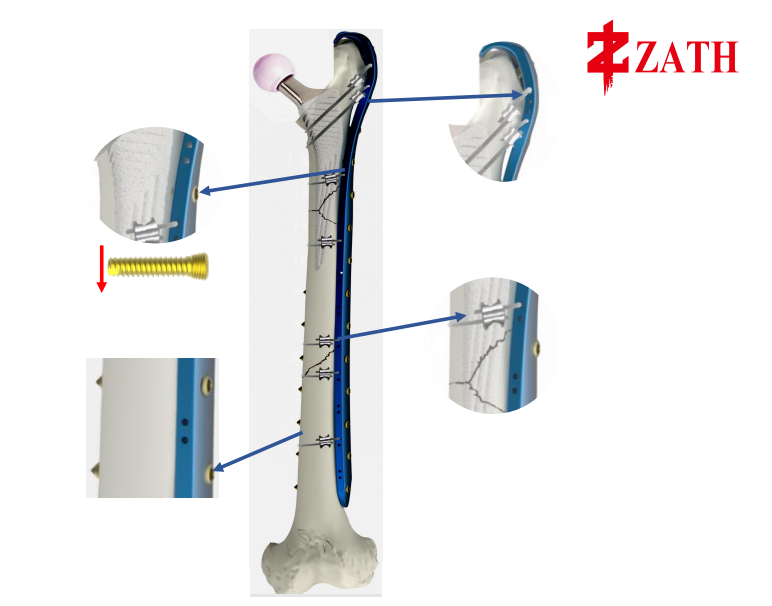What is the Proximal Femoral Locking Plate feature?
Proximal femoral locking plate unicortical fixation with special flat head locking screw. More effective thread contact than general locking screw provides better screw purchase
Distal Biocortical fixation by general locking screw
Anatomical design
Use Ф1.8 cable through preset cable hole according to the fracture positions to ensure the fixation strength

The Locking Compression Plate Implants specification
Proximal Femoral Locking Plate Thickness: 6.0mm
Locking plate Width: 18.0mm
Proximal Femoral Locking Plate Specification:
7 holes x 212mm (Left)
9 holes x 262mm (Left)
11 holes x 312mm (Left)
13 holes x 362mm (Left)
7 holes x 212mm (Right)
9 holes x 262mm (Right)
11 holes x 312mm (Right)
13 holes x 362mm (Right)
Post time: Sep-19-2024
